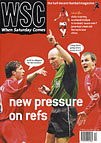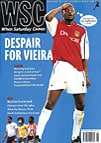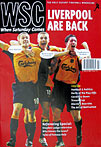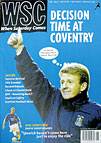 The recent wrangle ove coverage of the World Cup is only one symptom of the fear that the TV rights boom is over. Alan Tomlinson looks at the ramifications for FIFA
The recent wrangle ove coverage of the World Cup is only one symptom of the fear that the TV rights boom is over. Alan Tomlinson looks at the ramifications for FIFA
Sepp Blatter, president of FIFA, is the quintessential marketing man, a salesman for sport’s biggest event, the World Cup. You’d think it would be the easiest selling job in the world. Guido Tognoni, FIFA’s top media man for ten years until 1994, once told me: “In FIFA you don’t have to sell the product, it’s a self-seller. FIFA lives from one event, the World Cup, and this event lives from marketing and television receipts.”


